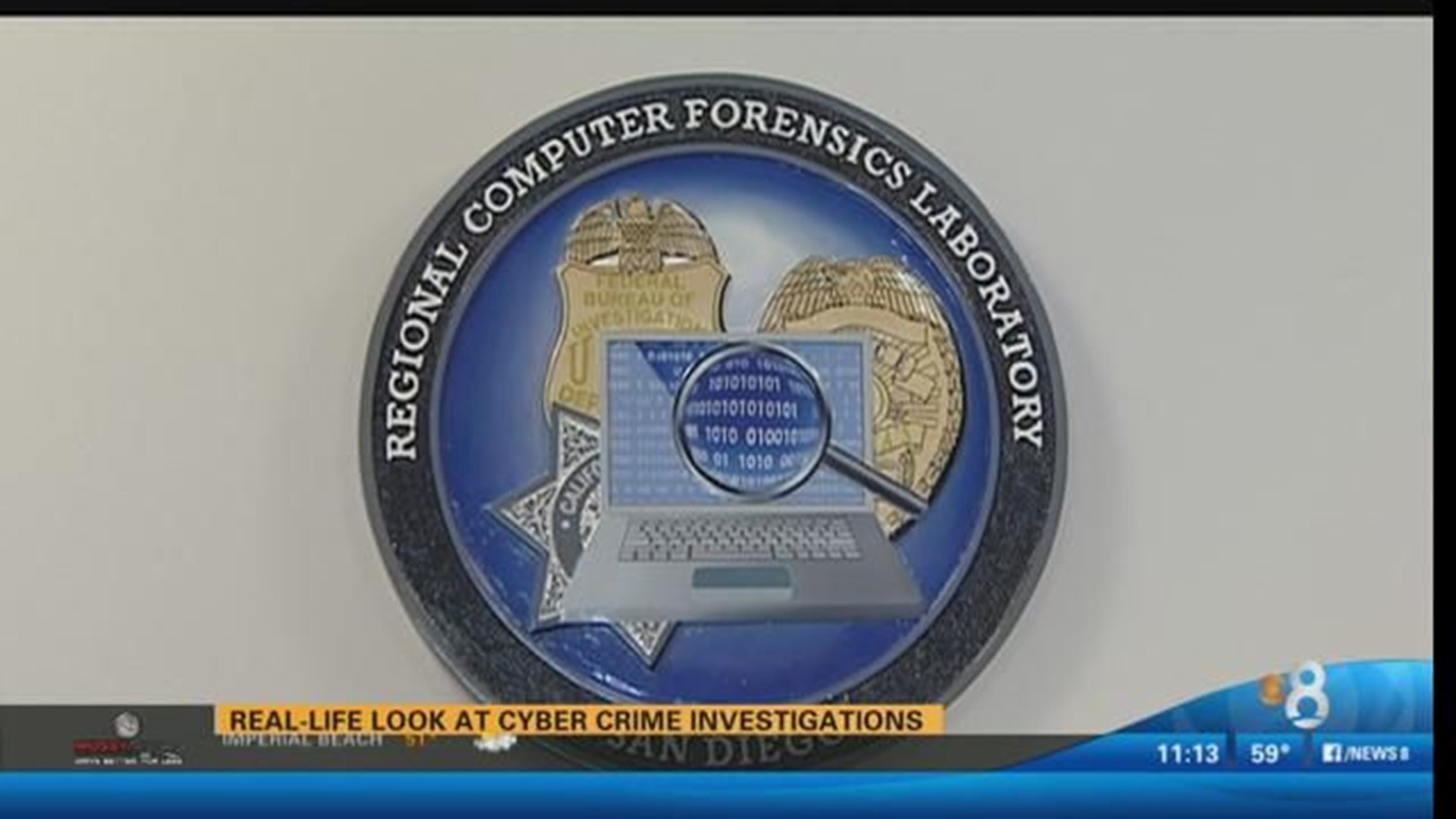SAN DIEGO (CBS 8) - After CSI: Cyber aired on CBS 8 Wednesday night, CBS News 8 went inside the FBI's local computer forensics lab for a real-life look at how cyber criminals are caught.
The first Regional Computer Forensics Laboratory (RCFL) started in San Diego in 1999 where two-thirds of the staff are from federal, state and local law enforcement agencies examining digital evidence.
More than 600 cyber examines are done each year involving terrorism, fraud, and child exploitation.
"These are very, very disturbing images and video of acts being perpetrated on young girls primarily,” said RCFL San Diego Director, James Mailloux.
The web of digital DNA goes beyond examining computer-related crimes. Examiners assist law enforcement agencies on the federal, state and local levels. They play a crucial role in cases including the 2013 Christmas Eve triple murder in Mission Valley.
“The cellphone data and the computer data was very indicative who was behind the crime and what their thoughts were and what they were driving towards,” said Mailloux. (Carl G. Mercado has been charged for the murders but a judge ruled he is not competent to stand trial)
CBS News 8 got an inside look at the lab where digital evidence is transferred and examined from a computer or cellphone. The gadgets are not like the ones you'll see on CSI Cyber that premiered Wednesday night on CBS 8.
The scenarios are real, baby monitor hackers, but the 23 examiners at the local RCFL say investigating digital evidence takes much longer than an hour-long episode.
“The problem is to get to the point you see on TV in real life takes a long time,” said Mailloux.
He says the computer evidence is there but a human still needs to decipher what is relevant and lawful in the case. Evidence can take two weeks, even longer to investigate. The pool of data is getting larger. Last year at the San Diego RCFL, 560 terabytes of data were analyzed. That would amount to about all the books stored in 28 Libraries of Congress.
“Whether it's a cyber crime, whether it's a homicide, whether it's a terrorism case, there will probably be some digital evidence somewhere along the line,” said Mailloux.
To protect yourself from having your personal data exposed the FBI recommends simple steps such as frequently updating your operating system, change passwords and avoid quick clicking on unknown links, even if it appears it's from an e-mail address you know.
Agents say all the digital evidence examined at the RCFL is through a court order, search warrant or consent.

